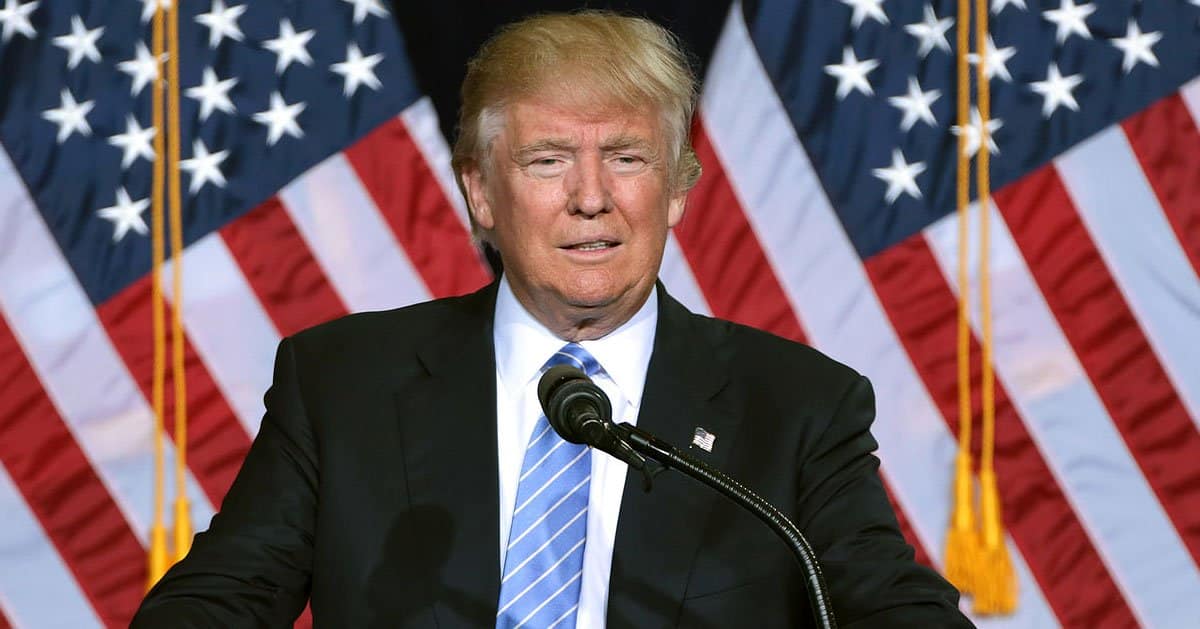







The New York Times has unearthed years-old emails and texts from Senator J.D. Vance, which reveal his past denunciations of Donald Trump, as well as his supportive comments towards his transgender classmate, Sofia Nelson.
Fox News reported that these revelations have cast a spotlight on the stark contrast between Vance's former and current stances, stirring public discourse and offering a window into his evolving political views.
In a series of articles, The New York Times disclosed Vance's private communications with Sofia Nelson, dating back to their time at Yale Law School between 2014 and 2017. Among the messages, Vance labeled Trump as "a morally reprehensible human being."
The earliest email excerpt shared by The Times is from 2014, in which Vance vocalized his negative perception of the police following the death of Michael Brown in Ferguson, Missouri. "I hate the police," Vance stated, empathizing with the systemic challenges faced by Black Americans.
Moving into 2015, Vance continued his critical tone towards Trump, expressing concern about the impact of Trump’s rhetoric on Muslim citizens. "I’m obviously outraged at Trump’s rhetoric, and I worry most of all about how welcome Muslim citizens feel in their own country," he wrote.
The emails further highlighted Vance's continuous support for Nelson, despite a mistake in his book "Hillbilly Elegy," where he incorrectly referred to Nelson as a lesbian. In a 2015 email, Vance apologized to Nelson, writing, "I hope you recognized that the description came from a place of ignorance...if you are offended, I’m sorry!"
Moreover, Vance, at that time, expressed a poignant stance on the intersection of race and politics. "The more white people feel like voting for Trump, the more black people will suffer. I really believe that," he asserted.
These disclosures starkly juxtapose Vance’s present-day views, as he has since become an ardent supporter of Trump, giving rise to questions about the evolution of his political beliefs.
Vance’s relationship with Nelson endured until 2021, when he publicly endorsed a ban on gender-affirming care for minors in Arkansas, a move that strained their friendship. Currently, Nelson serves as a public defender in Detroit.
Additionally, in a rebuttal to The Times, a spokesperson for Vance criticized the release of the private conversations. "It's unfortunate this individual chose to leak decade-old private conversations between friends to The New York Times," the spokesperson remarked.
The spokesperson elaborated on Vance’s evolving viewpoints, explaining how becoming a father influenced his perspective. "Senator Vance values his friendships...he has been open about the fact that some of his views from a decade ago began to change after becoming a dad and starting a family."
In a previous interview with Fox News' Bret Baier, Vance openly admitted his misjudgment of Trump, expressing that he initially did not foresee Trump being a "good president." He stated, "Look, I was wrong about Donald Trump. I didn’t think he was gonna be a good president, Bret."
Vance has since come to view Trump positively, acknowledging him as a "great president" and advocating for his re-election, demonstrating the complete shift in his stance.
In the same vein, Vance’s spokesperson reiterated that despite the discord, Vance continues to "care for Sofia and wishes Sofia the very best," underscoring the complex nature of personal and political allegiances.
The revelations from The New York Times have drawn a mosaic of reactions from the public, reflecting the intricate journey of an evolving political figure. The spotlight on Vance’s former communications provides an unusual glimpse into the transformation from a Trump critic to a staunch supporter.
The exposure of these private exchanges underscores the dynamic and sometimes contradictory nature of political and personal growth, emphasizing how external factors can reshape one’s worldviews.
As these private conversations come to light, they have sparked discussions on the nature of political fidelity, the impact of personal relationships on public life, and the evolving nature of ideology in the landscape of American politics.
The implications of this story stretch beyond Vance and Nelson, touching upon larger themes of transparency, political transformation, and the intersections of personal and public lives.
In conclusion, the publication of these emails paints a multifaceted picture of Vance's ideological journey, from his critical stance on Trump and his empathy toward systemic issues to his ultimate support for Trump as a leader.
Despite the controversy and divergent paths taken by Vance and Nelson, the conversations provide a candid look at the complexities of evolving political beliefs and personal relationships.



